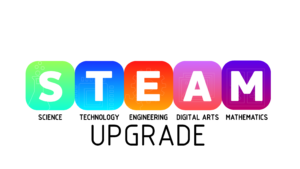The purpose of the research area is to contribute to the quality development in higher education in general and in teacher education and training in particular, with regards to digital competence.
Vocational education and workplace training enhancing social inclusion of at-risk young people (EmpowerVET)
The main research goal of the project is to investigate, how can vocational education and training (VET) enhance social inclusion of young people at-risk, both in terms of combating school drop-out and promoting transitions between various (social) learning contexts, such as school-work transition.

The project comprises of three sub-studies. In the first phase we focus on understanding personal strategies and institutional factors supporting or hindering educational careers of young people. In parallel with a narrative study focusing on at-risk youth in VET schools and workplace learning contexts, statistical analyses based on PIAAC data will be conducted.
The second part of the study is aimed to map the “best practice” of approaches, methods and tools used to support inclusion of at-risk youth. As the third phase of the study an Educational Learning Lab intervention will be implemented to develop, test and assess methods and technology-based tools for successful inclusion of at-risk youth.
The project will shed light on complex interplay of personal and institutional factors and different dimensions in the ecosystems of young people affecting their learning trajectories and life careers.
Moreover, the project will have practical implications on actors and settings of interventions. By applying the Educational Learning Lab model the study is expected to introduce a novel approach how school or community level processes could be co-constructed and is expected to give a boost to the professional development and agency of vocational teachers and workplace instructors.
The project will also contribute into networking and future research collaboration between partner institutions. In the frame of the project a joint project application for Horizon/RIA project will be developed. Moreover, the networking and professional development of the doctoral students involved in all phases of the project are taken as a central importance.
- Empowering At risk- youth in and Through Vocational Education, A Comparative View of the Baltic Countries and Norway, 2025
First article submitted:
“Social and institutional ecosystems of VET and labour market integration of at-risk youth in the Baltic countries: implications of Baltic neoliberalism”. Education + Training. Special Issue: Labour market integration of the socially disadvantaged groups. (manuscript submitted)
For more information on the project
Please get in touch with the project team!
Tarja Tikkanen, Marike Gerdien Bruin, Vegard Moen & Stein Erik Solbø Ohna
No Teacher Educator Left Behind (NOTELEB)
The purpose of the project No Teacher Educator Left Behind (2020–2023) is to contribute to the quality development in higher education in general and in teacher education and training in particular, by planning, implementing and assessing a model based on informal learning in the workplace, comprising of hands-on, innovative activities to initiate and support teacher educators' development of their Professional Digital Competence.
Teacher educators are our primary target group, and pre-service and in-service teachers a secondary one. Compared to teachers in schools and their professional development, there has been little attention and systematic support directed to development of teacher educators' professional digital competance (PDC).
Further, "excellence" and effectiveness in teaching and skills development must in today's information society, incorporate digital competence, not least pedagogical skillfullnes in using various digital tools. However, the practice in mainstream teacher training in most European countries largely still seems to be very different: the use of digital tools for pedagogical purpose and development of PDC lacking systematic national or even institutional approach and/or support, being instead rather haphazard; driven often by single enthusiasts among the staff; with little place to digital skills in curricula, thereby failing the newly qualified teachers' PDC to meet the reality and needs out in the schools. Consequently, it is clear that all too many teacher educators have serious skills gaps and mismatches in regards what is/could be expected from them in their work to promote 21st Century learning.
NOTELEB will importantly support teacher educators’ lifelong learning in the context of their work with children and youth through continuous professional development. The project objectives are:
O1. to tackle skills gaps among teacher educators by supporting of and contributing to development of their PDC.
O2. to contribute to modernizing teacher education by promoting technology-supported teaching methods and tools, through linking PDC development with research, innovation, and work-based informal learning.
The project comprises of the four main activities to reach the goals: (i) designing, implementing, evaluating and validation of a model for development of PDC in teacher education, (ii) building, testing and implementing a pedagogic-digital toolkit, (iii) producing a video and other interactive learning materials (including also smaller videos), and (iv) development and implementation of an online course for PDC development among teacher educators. Related to the implementation and evaluation of the PDC model, a follow-up case will be carried out, each partner institute constituting one case. Major events for disseminating project outcomes are two transnational conferences to be arranged.
The project is planned for three years, 2020-2023. It will be implemented in collaboration between five partners: University of Stavanger, Norway (coordinator), University of Jyvaskyla, Finland, Tallinn University, Estonia, Norwegian University of Science and Technology (NTNU), and Technische Universität Berlin (TUB), Germany.
For more information on the project
Please get in touch with the project team!
Tarja Tikkanen (project manager), Vegard Moen, Rebecca Stuvland, Paolo Haaland Scarbocci, & Minttu Johler (PhD-student)
Digital Competence in Teacher Education in the Nordic Countries (DICOMTEN)
The purpose of DICOMTEN is to establish a new Nordic network on the topic. This is a highly important, but not systematically addressed development area within higher education in the Nordic countries.

The crucial question is “how to”?
The eight partners from six countries were selected on the basis of their ongoing activity to develop professional digital competence (PDC) among teacher trainers and students or in-service teachers. The motivation for all partners to join the network is its potential to value added to their own development work in teacher training (TT).
We apply a comprehensive approach to cover PDC in TT and use the TPACK model (Technological-Pedagogical-Content-Knowledge) to guide and structure the network activities. The goals of the network are to promote the theoretical and practical work in TT and related dialogue across the Nordics in this complex and contested topic in the context of the 21st century school; to contribute to development of teacher trainers' and pre-service teachers’ PDC, and; to develop joint R&D applications to other international sources (e.g. H2020, Erasmus+).
Besides networking, a central activity will be planning and implementing edtech pilots with students by each partner. The network is planned for three years, 2020-2023 with an aim at long-term, sustainable collaboration. The network partners are teacher training institutes at University College Copenhagen, Tallinn University, University of Jyvaskyla, University of Iceland, Western Norway University of Applied Sciences, NTNU, Linnaeus University (SE), coordinated by the University of Stavanger.
Please get in touch with the project team!
Tarja Tikkanen (project manager), Rebecca Stuvland, Paolo Haaland Scarbocci, Minttu Johler (PhD-student) & Espen Lunde.
Gaming and eSport in lower secondary schools
Video games have rapidly become very popular along with the digital transformation and entered also into the world of school and education. This is a pilot project.

Video games, while not new (Malek, et al., 2019), have rapidly become very popular along with the digital transformation and entered also into the world of school and education. In the school context, gamification has turned out to have both an upside and downside, with both positive and negative consequences and implications (Egenfeldt-Nielsen, 2006; Malek, et al., 2019). Typical to these games is a dual purpose: education and entertainment, “edutainment” (Egenfeldt-Nielsen, 2006). Thus, the old concept of playful learning has been referred to in this context, too. On the positive side, gaming can expand students’ learning opportunities at school with new tools, which are both engaging and motivating and fun (Schmitz, Klemke & Specht, 2013), at the same time as may make learning more effective. For example, positive learning effects were related with English language, oral and written in a Norwegian study (Aaboen Sletten, Strandbu & Gilje, 2015). For teachers gaming provides an add to their pedagogical-didactic toolpack to potentially increase student motivation and their learning engagement. Indeed, while using games in learning is as old as time, video games open up a new way of viewing teaching and learning. Gaming builds on student active learning and teacher role as a facilitator rather than one imparting knowledge. In this context hybrid pedagogy and digital pedagogy have been introduced and called for, while both rather difficult to define.
A major downside with video games is that it can have social impact and do the exact opposite to the above, especially when related to intensive time use with them: distract the students from purposeful learning experiences and engagement (Adelantado-Renau, et al., 2019), even if each game develop skills within its activity range. In Norway, negative learning effects have been found in Norwegian and mathematics (Aaboen Sletten, Strandbu & Gilje, 2015). A German study found that extensive screen time with gaming predicted worse grades 2 years later and concluded that “playing computer and video games can result in a noticeably, albeit small, loss of educational returns, but it does not affect basic competences [mathematics and reading]” (Gnambs,et al., 2020). However, the research is inconclusive whether “gaming activities result in poorer academic achievement, or, rather, are academic underperformers more likely to play computer and video games” (Gnambs,et al., 2020, 70). Nevertheless, at its most serious excessive gaming can lead to increased school absence and aversion. To some students this process can escalate and end up in their complete withdrawing from school and dropout, even illness (addictive behavior, internet gaming disorder, IGD - e.g. Wang, et al., 2020; Lindenberg, et al., 2017). Thus, gaming can be approached also from the perspective of social participation, active engagement and inclusion/exclusion (health and wellbeing).
This pilot study will cover both of these perspectives to the gaming phenomenon in the context of schools. Video games are also the core of eSport, which also has started to enter schools, acknowledged as a fully-fledged sport activity along side with physical sport. While in both playing video games is central, eSport has a competitive end element in-built, involves multiple players (multiplayer video games), and aims at professional gaming, competitions and game tournaments involved, as well as commonly a disciplined lifestyle, in line with any performing athletes. The following is one description of the differences between the two:
“Esports and gaming are two terms often used interchangeably. While crossover exists between the two, there are fundamental differences that everyone should know.
Gaming is a broad term encompassing playing any video game regardless of platform or means. Esports only focuses on competitive video gaming where one side loses and the other side wins. There is always something at stake, and yes we are aware draws exist. The distinction between gaming is esports is similar between kicking a ball around and playing football in the Champions League.”
Generally speaking, gamification research shows among others that while much use of time with video games and school grades are negatively correlated, when youg people are also, simultaneously a member of a sports club, this negative relationship with intensive time use with video games disappears (Aaboen Sletten, Strandbu & Gilje, 2015). The player orientations have been categorized in various ways (see the European ADeAPTIVE-project ). Five orientations were identified in the meta-study by Hamari and Tuunanen (2014): achievement, exploration, sociability, domination, and immersion. In regards emotional immersion, gamification has been found to support dialogic learning (Doumanis, et al., 2019). The Center for the Science of Learning & Technology (SLATE) at the University of Bergen is carrying a large esportsNS research project, addressing “the emerging need to identify factors to develop esport programs that go beyond skills and performance to also consider psychological factors and mental health” (Ortiz de Gortari in esportsns.com).
The main purpose of this pilot project is to generate an initial knowledge- and experience base within the thematic gaming and eSports, to prepare an NFR/NRC main research proposal later (2022). We are especially interested in exploring, how could schools take an active stance to the thematic and turn the problem side into a solution towards inclusive school and learning for all.
Research questions
- What are the main issues and trends in gaming and eSport explored and highlighted in recent research in the field?
- How do different stakeholders in gaming and eSport – school leaders, teachers, students, and private enterprises - describe the potential and potholes in these activities in school context, pedagogically and beyond, based on their own experiences?
Please get in touch with the project team!
Tarja Tikkanen (project manager), Marike Gerdien Bruin & Barbara M. Waloszek (ph.d.-student)
Impact of public authorities and educational technology on development of professional digital competence in teacher education and schools (DIGOV) (Project completed)
How does management in teacher education and schools evaluate the impact of public authorities and educational technology (providers) on development of professional digital competence?

Ever since Norway started to digitalize schools, the rationality has been tools first, pedagogical user know-how second. In the discussion about the biggest challenges in digitalizing of schools, a common line of argumentation has been that the problem is not access to technology, but what teachers, on all levels, can do to make sure that the technology available brings pedagogical value added.
For a decade or two, that discussion was a good deal less audible in teacher education (TE), but has lately started to incorporate them, too. Without challenging this argument, in this study we take a different stance: Our point of departure is that availability of and access to technology in general, and the kind of technology in particular, do matter to development of professional digital competence, in schools as well as in TE.
From this perspective, it is the decision making (policies and practice) regarding educational technology (edtech) procurement on both contexts that plays a pivotal role for the leaders’ room of manoeuvre in facilitation of relevant competence development.
Our research question is: how does management in TE and schools evaluate the impact of public authorities and educational technology (providers) on development of professional digital competence (PDC)?
A range of factors in public but also in private sector have an effect on development of PDC of teachers. The actualization and relative weight of these factors in competence development, are mediated by management decisions, in TE and schools. Thus, we shall explore how management (those with decision-making power regarding edtech procurement) in TE and schools, view the relative and factual impact of the two type of factors.
The pilot study will bring new knowledge in the fields of development of teachers’ PDC and governance of digital development in education. Our hypothesis specifically concerns the direct and indirect impact of management’s decision-making regarding edtech procurements, thus adding the effect of private sector, and private-public collaboration to the traditional view of sole public authorities’ responsibility to this end.
The 12-month pilot was implemented in 2020, mainly as a qualitative interview study, in collaboration between five institutions in UH-NettVest: UiS (coord), NLA, HVL, UiB, and HiVo. The partners have complementary competence and experience in regards the research question, to implement the project with high quality. The findings will be published as an article in an international scientific journal and a summary in Norwegian. Funding for a main project will be sought from the Research Council (NFR) in 2020. The pilot will also be related to EU- and Nordic applications by UiS.
Articles:
Amdam, S., Kobberstad, L. R., & Tikkanen, T. (2021). Profesjonsfagleg digital kompetanse i strategi og realitet. Kva tyder digitalisering av lærarutdanning for leiarar ved ulike utdanningsinstitusjonar i Norge? Presentasjon i den 8. nasjonale Lærerutdanningskonferansen, 27.-28.4.2021 (link).
Amdam, S., Kobberstad, L. R., Moltudal, S. & Tikkanen, T. (2022). «Professional digital competence in strategy and reality. What does digitalization of teacher education mean at different educational institutions in Norway?”. Nordic Journal of Digital Literacy (NJDL), 02/2022 Special Issue: Digitalization of primary- and lower-secondary school teacher education (Digilu) 2018-2020. (manuscript accepted)
STEAM Upgrade
Upgrading pre- and in-service teachers’ digital skills with online STEAM hands-on training modules.

The project is coordinatred by Tallin University. Contact person and coordinator for the University of Stavanger's project participation is Frode Skarstein.
For more information:
Contact
Department of Education and Sports Science
